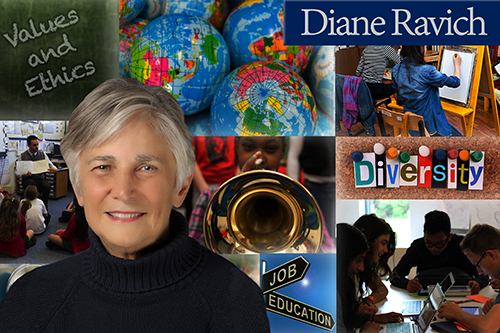The Global Search for Education: Just Imagine Secretary Ravitch

“In my view, historians will look on this era as a period of failed mandates, of willful and ignorant attacks on public education and the education profession, and as a time in which entrepreneurs sought to turn education into a marketplace for profit.” — Diane Ravitch
What will be the legacy of Race to the Top and Barack Obama’s other education initiatives? Indeed, what’s been accomplished in education reform around the country since 2012? Does our current traditional model of education meet the needs of most students? Is our curriculum preparing them for the jobs we need to fill in an age of globalization and artificial intelligence? What are the most critical needs for education leading up to 2030? Should tuition at public colleges and universities be free?
As the United States prepares to elect a new President this November, putting every student on a path towards a successful future should be required discussion at every presidential debate. This season in The Global Search for Education, we bring back our popular 2012 Education Debate series and put these questions and others to thought leaders at the forefront of educational change. We asked Andy Hargreaves, Diane Ravitch, Howard Gardner, Randi Weingarten, Julia Freeland Fisher, and Charles Fadel to imagine they were Secretary of Education for the new administration. What are their answers to some of the big picture questions facing education and education reform?
Today we welcome Diane Ravitch. Ravitch is Research Professor of Education at New York University and a historian of education. From 1991 to 1993, she was Assistant Secretary of Education and Counselor to Secretary of Education Lamar Alexander in the administration of President George H.W. Bush. She is the author of many books including: The Death and Life of the Great American School System: How Testing and Choice Are Undermining Education (2010).

Diane, what will be the legacy of Race to the Top and Barack Obama’s other education initiatives?
In years to come, when historians look back on the early twenty-first century, they are likely to refer to the “Bush-Obama policies,” because No Child Left Behind (NCLB) and Race to the Top share a similar ideology. The shared assumptions are that standardized testing is both the best measure of educational progress and the goal of education. The ideology rests on a firm belief in extrinsic rewards and punishments. If children are tested, their test scores are used to identify their rating, as well as the ratings of their teachers, principals, and schools. Race to the Top required schools across the nation to adopt test-based evaluation and to fire educators and close schools based on test scores. And like NCLB, Race to the Top encouraged the mistaken belief that privately managed charter schools and state takeovers were a successful remedy to low-scoring schools.
Both NCLB and Race to the Top–and the assumptions behind them–were not only ineffectual but demoralizing The Global Search for Education: Just Imagine Secretary Ravitch:
